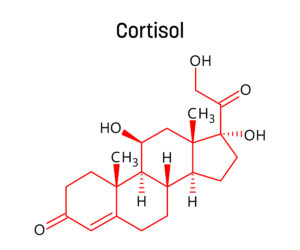Here are a few items that can prolong life; among them any form of exercise is good. This article concentrates on the exercise part in relation to longevity. A recent publication described how regular exercise prolongs your long-term survival. According to a study released on occasion of the American Heart Association’s Scientific Session 2023 there are 8 major factors that prolong life: healthy diet, physical activity, nicotine exposure, sleep health, BMI, cholesterol, blood sugar, and blood pressure. Among this group of factors regular physical activity plays a major role to prolong your life. Researcher who studied various people found that those who neglected their physical health had a chronological age of 53, but their average biological age was 57. On the other hand, a group of fit people who engaged in regular physical exercise had a chronological age of 41 years, but a biological age of 36.
Clinical trials showing that any form of exercise is good
JAMA Internal Medicine study by Dr. del Pozo Cruz
This study examined what the optimal amount of physical activity per week is to reduce mortality compared to an inactive population. 500,705 eligible US adults were observed for about 10 years. The abbreviations that the authors used in the study were as follows:
MPA: moderate aerobic physical activity
VPA: vigorous aerobic physical activity
MSA: muscle-strengthening activity
Results of mortality reduction with various amounts of physical activity
- The best group engaged in more than 0 to 75 minutes of MPA combined with more than 150 minutes of VPA and 2 or more MSA sessions per week. Their mortality rate was 50% lower than an inactive comparison group.
- The optimal combination for reduction of cardiovascular disease (CVD) and cancer mortality risk was as follows: more than 150 to 225 minutes of MPA, more than 0 to 75 minutes of VPA, and 2 or more MSA sessions per week. This reduced combined mortality of CVD and cancer by 70%.
- The researchers stated that the adjusted mortality rates represented 50% lower mortality rate for all-cause and cancer mortality. The mortality rate for CVD mortality was 3-fold lower than for inactive controls.
Smallest amount of exercise that reduces mortality
In a study published in the European Heart Journal the authors asked how little exercise per week was enough to reduce mortality from heart disease. They found that it takes at least 15–20 min/week of vigorous physical activity (VPA) to reduce mortality from heart attacks by 16–40%. If you increased the exercise level by 50–57 min/week the mortality rates reduced even further.
Are physically active jobs healthy?
Recent research showed that people who work in physically demanding jobs are more likely to develop early cognitive impairment. This is the pre-stage of Alzheimer’s disease. 15.5 % of people who worked in high levels of occupational physical activity developed dementia. This compared to 9% risk for people whose work involved a low level of physical activity, not too much and not too little. The finding confirms the notion that there is a need for balance of physical exercise. Several publications stressed what is optimal in terms of exercise: vigorous (75 to 300 minutes per week) and moderate physical activity (150 to 600 minutes per week). People who expose themselves to these amounts of exercise live the longest and stay healthy.
Discussion
The studies discussed here showed that the right amount of exercise can reduce mortality from heart disease and cancer. However, exercise is not the only factor that can do this. It is important to combine regular exercise with a healthy diet. Your diet should consist of fruits and vegetables, whole grains, low-fat dairy products, lean proteins and limit saturated and trans-fat, added sugars, and sodium. In addition, you need enough sleep, maintain a healthy weight, manage your stress, and don’t smoke.
Conclusion
In this review I touched on the importance of regular exercise to reduce mortality from heart disease and cancer. Vigorous (75 to 300 minutes per week) and moderate physical activity (150 to 600 minutes per week) reduce mortality from heart attacks by 16% to 40%. But physical exercise is only one factor of mortality reduction. If you want the full benefit from other factors, you must quit smoking, eat a Mediterranean type diet with fruits and vegetables, whole grains, low-fat dairy products and lean proteins. Also you should limit saturated and trans-fat, added sugars, and sodium. In addition, you need enough sleep, maintain a healthy weight and manage your stress. Once you adopted this lifestyle, you live longer and you will get less diseases.















